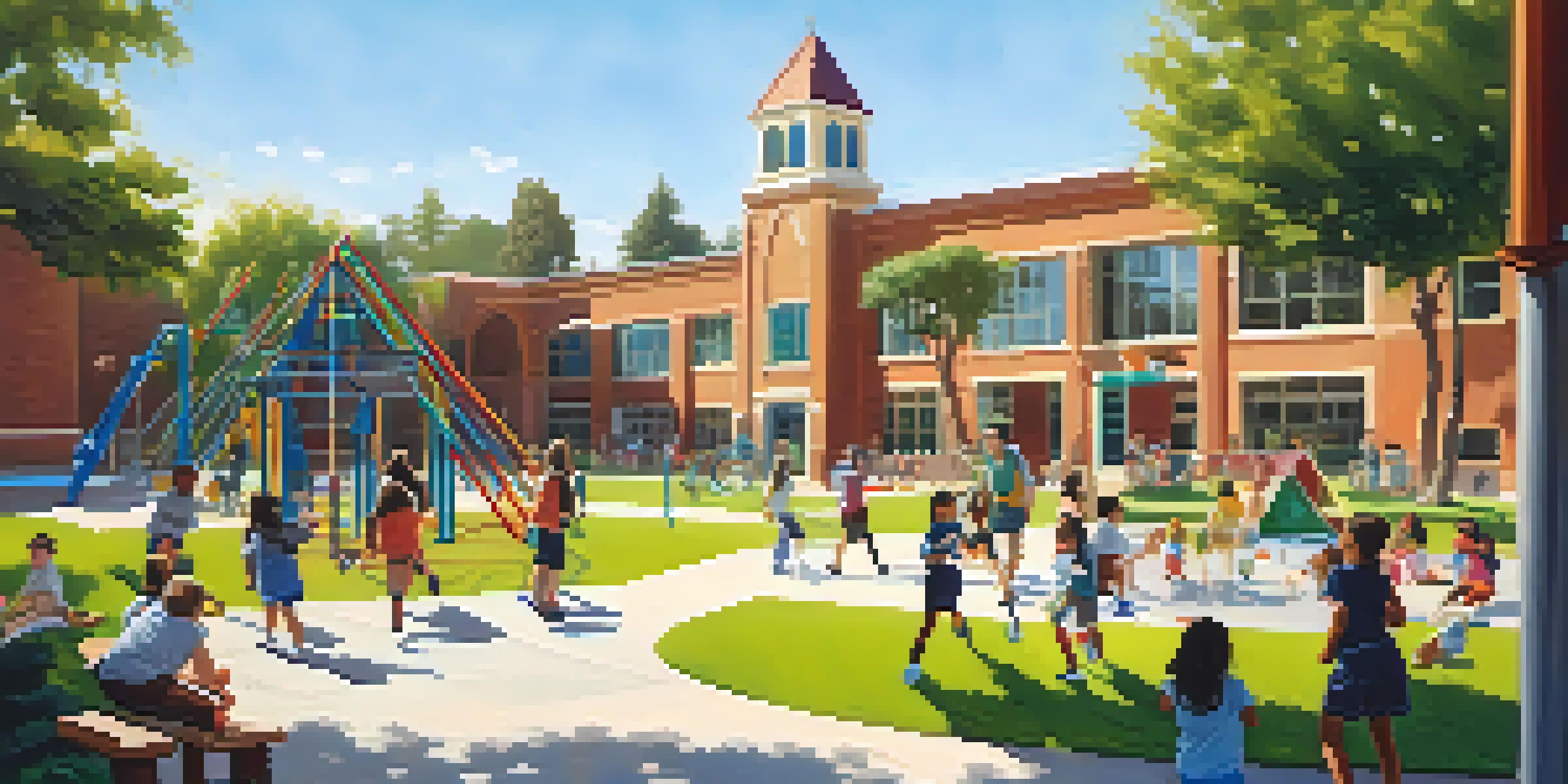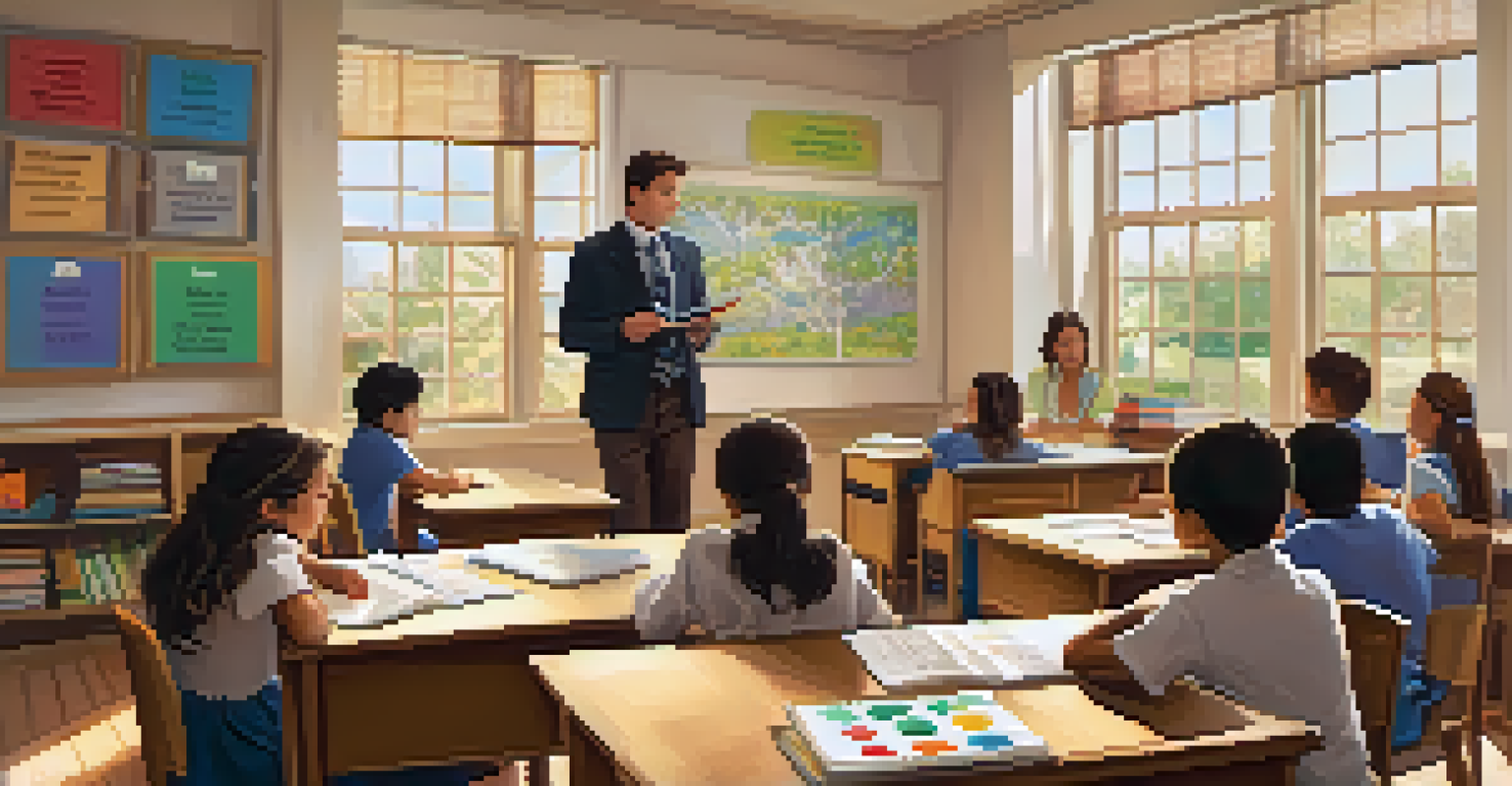The Influence of Private Schools on San Diego's Education

Understanding the Role of Private Schools in San Diego
Private schools in San Diego play a significant role in the educational landscape, offering families diverse options. These institutions often focus on smaller class sizes, personalized attention, and unique curricula that may not be available in public schools. For many parents, the choice of a private school aligns with specific educational philosophies or religious beliefs, creating a tailored learning environment for their children.
Education is the most powerful weapon which you can use to change the world.
One of the standout features of private schools is their ability to innovate in teaching methods and curricula. Without the constraints of state regulations that public schools face, private institutions can implement progressive educational approaches. This flexibility can lead to enhanced learning experiences, catering to different learning styles and needs, which can be particularly beneficial for students who thrive in non-traditional settings.
Moreover, private schools often emphasize character education, leadership, and community service, fostering well-rounded individuals. They encourage students not just to excel academically but also to develop social skills and a sense of responsibility. This holistic approach can significantly influence the overall educational experience of students in San Diego.
The Impact of Private Schools on Public Education
The presence of private schools in San Diego creates an interesting dynamic with public education. As families opt for private education, public schools may feel compelled to enhance their offerings to retain students. This competition can drive improvements in curriculum, extracurricular activities, and support services within public schools, ultimately benefiting all students in the area.

However, this competition can also lead to challenges for public schools, particularly in terms of funding and resources. When a significant number of students leave for private institutions, public schools may face budget cuts due to decreased enrollment. This situation can create a cycle where public schools struggle to provide quality education while competing with their private counterparts.
Private Schools Offer Unique Options
Private schools in San Diego provide tailored educational experiences with smaller class sizes and innovative curricula.
In some cases, the focus on college readiness and standardized testing in private schools can influence public school policies as well. Public schools may shift their teaching methods or prioritize certain subjects to align more closely with what private schools offer, aiming to prepare students for future academic success. This ripple effect highlights the interconnectedness of the educational ecosystem in San Diego.
Diversity and Inclusion in Private Schools
Diversity and inclusion are essential considerations in the context of private schooling in San Diego. While many private schools embrace a broad range of cultural and socioeconomic backgrounds, there are concerns about accessibility. Tuition fees and admission processes can limit enrollment to families who can afford it, creating a less diverse student body compared to public schools.
The roots of education are bitter, but the fruit is sweet.
However, some private schools actively work to increase diversity through scholarships and outreach programs. By providing financial assistance to underrepresented students, these institutions aim to create a more inclusive environment. This commitment can enrich the educational experience for all students, fostering a sense of community and understanding among diverse peers.
Additionally, the emphasis on cultural competence in private school curricula can prepare students for a globalized world. By encouraging discussions around social justice, equity, and multiculturalism, private schools can play a pivotal role in shaping students' perspectives. This educational approach equips students to become empathetic leaders in an increasingly diverse society.
Extracurricular Opportunities in Private Schools
Extracurricular activities are a vital part of the educational experience, and private schools in San Diego often excel in this area. With more resources at their disposal, many private institutions can offer a wide range of sports, arts, and clubs that cater to various interests. This abundance of choices allows students to explore their passions and develop skills outside the classroom.
Participation in extracurricular activities can also enhance students' social development and teamwork skills. For instance, being part of a sports team or a theater production helps students build friendships and learn about collaboration. These experiences can be just as influential as academic achievements, shaping students into well-rounded individuals.
Impact on Public Education
The presence of private schools drives public institutions to enhance their offerings, impacting overall educational quality.
Moreover, the networking opportunities that arise from extracurricular involvement can be invaluable. Private school students often have access to alumni networks and community connections that can aid in college admissions and career opportunities. This advantage may provide them with a leg up in an increasingly competitive job market.
The Financial Implications of Private Education
The financial aspect of private schooling in San Diego is a significant consideration for families. With tuition rates often reaching thousands of dollars per year, the cost can be a barrier for many. Families must weigh the value of a private education against their financial capabilities, often leading to difficult decisions.
However, it's important to note that many private schools offer financial aid and scholarship opportunities to help alleviate this burden. These programs can make private education more accessible, allowing families from various backgrounds to consider these options. As a result, financial aid plays a critical role in shaping the demographic landscape of private schools.
Additionally, the investment in private education can yield long-term benefits. Studies have shown that private school graduates often perform well in higher education settings and beyond. Families might view the cost as a worthwhile investment in their child's future, contributing to the ongoing conversation about the value of education in San Diego.
Parents' Perspectives on Private Schooling
Parents play a crucial role in the decision to pursue private education for their children. Many express a desire for a more tailored educational experience, focused on their child's specific needs and strengths. The emphasis on individual attention in private schools often resonates with parents who want to ensure their child thrives academically and socially.
Moreover, parents often appreciate the values and community that private schools promote. For many families, the alignment of educational philosophies, religious beliefs, or moral values with school culture is a significant factor in their choice. This shared vision can create a supportive environment where families feel connected and involved in their child's education.
Financial Aid Aids Accessibility
Many private schools offer financial assistance, making education more accessible to families from diverse backgrounds.
However, some parents also acknowledge the trade-offs, including the cost and potential limitations in exposure to diverse perspectives. They often weigh these factors carefully, discussing them with their children to ensure that their choice aligns with the family's overall educational goals. This engagement highlights the importance of parental involvement in shaping educational experiences.
Looking Ahead: The Future of Private Schools in San Diego
As we look to the future, the landscape of private education in San Diego is poised for change. With the ongoing evolution of educational technology and teaching methods, private schools may continue to innovate and adapt to meet the needs of modern learners. This adaptability could further enhance their appeal to families seeking quality education for their children.
Additionally, the increasing focus on social and emotional learning (SEL) presents an opportunity for private schools to differentiate themselves. By incorporating SEL into their curricula, these institutions can address the holistic development of students, preparing them for life beyond academia. This focus could attract families who prioritize emotional well-being alongside academic success.

Ultimately, the influence of private schools on San Diego's education system will continue to be a topic of discussion. As families navigate their educational options, the interplay between private and public schools will shape the future of education in the region. It will be fascinating to see how these dynamics evolve and what impact they will have on students, families, and the broader community.